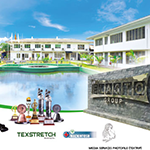WELLNESS TOURISM
The Future of Travel
A focus on holistic wellbeing is set to bolster the tourism industry
According to the Global Wellness Institute (GWI), ‘wellness’ is defined as the active pursuit of a state of holistic health. This encompasses physical, mental, spiritual, emotional and social wellbeing.
Wellness tourism is travel associated with the pursuit of maintaining, enhancing or kick-starting one’s personal wellbeing.
It comprises many practical components including a connection to nature, fresh local cuisine, quality accommodation, spa services, outdoor activities, mindfulness and natural therapies such as Ayurveda, as well as a connection to local culture.
Sri Lanka’s historical connection to Ayurvedic treatment and meditation, along with its advanced yet affordable modern healthcare system and the country’s popularity as a leading warm weather tourism destination, adds to its appeal as a wellness tourism destination.
With what was previously a strong tourism infrastructure, and widespread network of Western and Ayurveda medical treatment centres, international tourists would arrive in Sri Lanka with the hope of being able to combine a holistic wellness experience with an exciting holiday on the golden beaches or among the lush green mountains.
Indeed, the island is setting its sights on the vast potential of wellness tourism, which could be a major contributor to the nation’s forex inflows. A global rather than local phenomenon, wellness is presented in many different forms and manifestations.
International travellers with wellness or healthcare in mind seek services that are rooted in local traditions and natural assets. There is a growing demand for hotels with a health orientation as well as facilities that promise well-defined specialisations or concepts.
Holistic and spiritual tourism are currently the two main arms of wellness for which Sri Lanka is popular. This is the result of the nation’s historical association with Ayurvedic treatments, Buddhism and meditation, positioning the country as a coveted destination for many travellers around the world.
The Export Development Board (EDB) has identified health and wellness tourism as a key sector to promote in terms of foreign exchange earnings. This means wellness tourism remains a nascent segment in the country, focussed on traditional medicine.
However, the world is currently enduring a pandemic, which led entire countries to shut down. Our own island also suffered the severity of COVID-19 when the economy – which depends a great deal on tourism – was hanging by a proverbial thread not long ago.
With Sri Lanka’s borders gradually opening up, one may wonder what the future of tourism – especially wellness tourism – will entail for a nation such as ours. Presently, there isn’t far reaching global consumer awareness of Sri Lankan wellness experiences, making this a novel opportunity for the country to pursue.
Speaking at the Wellness Travel Summit, Katherine Droga – Initiative Chair of the GWI Wellness Tourism Initiative – stated that in the post-COVID era, more wellness travellers will be looking to destress and boost their wellbeing. This would entail seeking destinations that offer products and experiences that enable them to meet their desires.
To this end, she explained: “The key is to understand what global consumers in Sri Lanka’s key source markets (the UK, Germany, Australia, China and the US) are seeking with regard to wellness travel, and match this with what is unique and special about Sri Lanka.”



